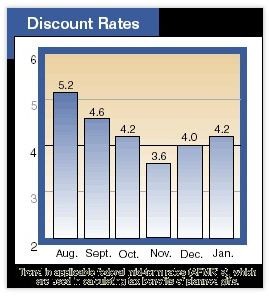New Year’s resolutions are a time-honored tradition. Unfortunately, it is also a time-honored tradition to abandon resolutions soon after the new year begins!
But why are some people able to keep their resolutions when most of us are not? As a general rule, those who are successful have not only a goal but also a plan for achieving it.
As the new year begins, now may be the ideal time to make a fresh start. Take the time now to review your program goals and adjust your plans in ways that may help you to achieve them.
Where to start
The first step is to honestly appraise where your program is today in relation to where it has been in the past and where you and others expect it to be in the future. Are you on track or ahead of schedule? Or are you running behind expectations?

The next step is to evaluate your primary program activities. Rethink the strategies you have been using to achieve your goals. Examine areas that you may be responsible for, including annual, special, major, planned, and capital giving. Are there ways they could be better integrated to achieve greater results while perhaps reducing costs?
Tactics that were successful during the boom period of the late 1990s may have lost some of their luster. For example, campaign strategies involving major gifts of appreciated securities, founders’ stock, or similar plans that benefited greatly from the wealth effect of the 1990s may not be as viable today as they once were. However, gifts of valuable tangible personal property or real estate may provide motivated donors with attractive options. And in today’s economy, a bequest or other planned gift commitment may be more feasible for many than an outright pledge.
Your goal should be to determine what is working in today’s environment so that you can focus your time and resources on areas that will yield the best return for your organization.
Once you have both a goal and a plan for achieving that goal, adjust your plans in writing, share them with your staff, and provide the guidance and leadership necessary to carry them out.
12 Tips for Starting the New Year Off Right
- Call your top individual donors to wish them a happy new year and personally thank them for their support.
- Send a written message to as many additional donors as is practical.
- Send a special acknowledgement letter early in the year outlining IRS substantiation requirements for gifts to all 2002 donors of $250 or more. You may want to include Sharpe’s booklet “Your Guide to Effective Giving in 2003” to assist with their planning for this year.
- Contact all life income gift donors to report on planned gifts that they may have in place and encourage repeat gifts.
- Consider what action, if any, should be taken on all pending proposals and proceed accordingly.
- Monitor all open estates and trusts and establish a tickler system to ensure that funds due from these sources are received in a timely fashion (typically 9-24 months). Consider other appropriate steps for distributions that are beyond acceptable time
- Review your regular planned giving marketing plan and consider additions or deletions to it. For example, in addition to broad-based marketing, it may prove productive to send a small number of very targeted mailings on subjects such as charitable lead trusts to wealthier constituents who in the past have only made outright gifts. You may also want to consider providing information on gifts of appreciated securities to executives of companies that are outperforming the markets. Sending a broad bequest mailing may serve to round out your other efforts by discovering those among your constituency who may have the greatest, and perhaps unfulfilled, donative intent.
- Establish or reinvigorate a recognition group to honor donors who have established planned gifts.
- Set a goal to make a reasonable number of additional telephone and personal contacts over the course of the year.
- Review your current and deferred gift acceptance policies (see page 3).
- Update your list of commemoratives or memorial naming opportunities.
- Improve your fundraising skills through professional advancement activities, training, and/or mentoring.

